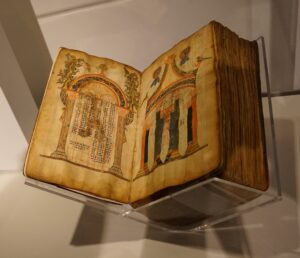By Angel Zohrabian
On April 12, 2015, my father and I had the opportunity of witnessing one of the most important and memorable events for all Armenians. We traveled to Rome to take part in the Mass dedicated to the commemoration of the Centennial of the Armenian Genocide. It took place in St. Peter’s Basilica, an awe-inspiring and magnificent church that provided a wonderful ambiance for Armenians and Catholics from everywhere to join together in prayer.
Four church leaders: His Holiness Karekin II (supreme patriarch and Catholicos of all Armenians), Catholicos Aram I (Great House of Cilicia), His Beatitude Nerses Bedros XIX (Patriarch of Cilicia of Armenian Catholics), and His Holiness, Pope Francis, stood united in Jesus Christ as they each led parts of the Mass, switching off between classical Armenian and Latin.
Along with the presence of the important religious figures were the President of the Republic of Armenia, Serzh Sargsyan, the bishops of the Armenian Church, and the cardinals from the Catholic Church.
The Mass, which took place on the second Sunday of Easter, was significant in not only bringing unity between Armenians and Catholics alike, but also in creating greater awareness towards the Armenian Genocide. The Genocide itself began on April 24, 1915 when hundreds of Armenian intellectuals, including clergy, doctors, attorneys, musicians, writers, and high ranking officials, were deported and killed by the Ottoman Turks. Thus started the deliberate attempt to annihilate the Armenian minority that was under Turkish rule at the time on their own land, due to their Christian faith and strong cultural identity. As a result, a large portion of historic Armenia, also known as Western Armenia, was forcibly taken from its people by means of killing and deportation.
Armenians have not received justice even 101 years later. Sadly, the Turkish government continues to deny that the massacre ever took place. The majority of the world has yet to fully recognize the loss of the 1.5 million innocent Armenians lives as well as 1 million Greeks and 750,000 Assyrians.









